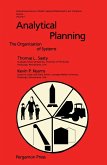The publication first ponders on the general resource allocation problem, particularly noting that a theory of resource allocation is formed by studying the deliberate and purposeful choices of individuals to provide a model for human behavior in the economic realm. The theory of exchange emphasizes that coordination and equilibrium must be formed to explain social linkages. The text then explains market allocation, and a number of propositions are discussed to show the dynamics of this field.
The manuscript elaborates on transaction costs, markets and uncertainty, and behavior in the face of uncertainty. The publication also takes a look at the terms of authority, measuring of information, value of communication in teams, cost of communication, and budget planning. The formal organization of decision-making, hierarchical supervision and loss of control, alternative requirements of formal organization, and expedience and incentives are also underscored.
The text is a valuable reference for researchers interested in the economics of organization.
Dieser Download kann aus rechtlichen Gründen nur mit Rechnungsadresse in A, B, BG, CY, CZ, D, DK, EW, E, FIN, F, GR, HR, H, IRL, I, LT, L, LR, M, NL, PL, P, R, S, SLO, SK ausgeliefert werden.









